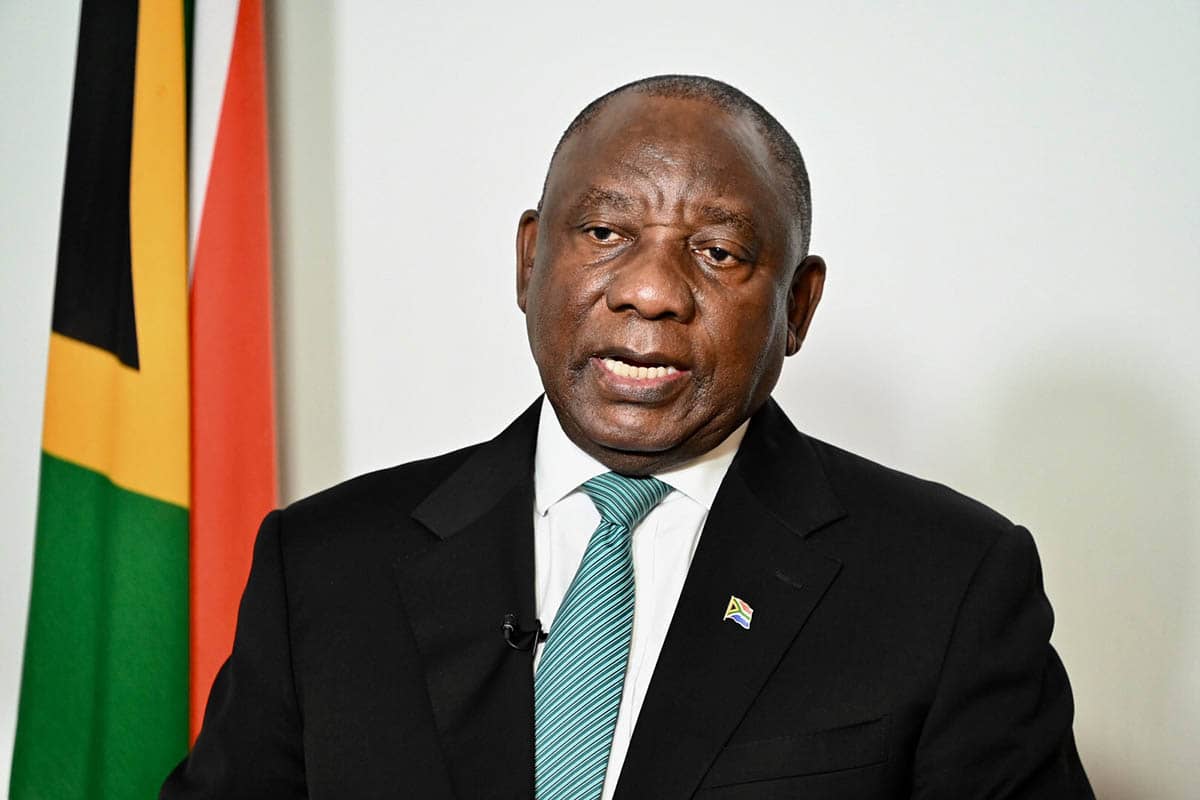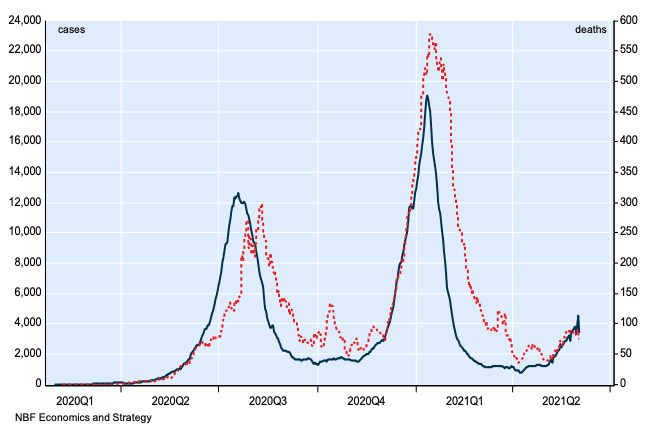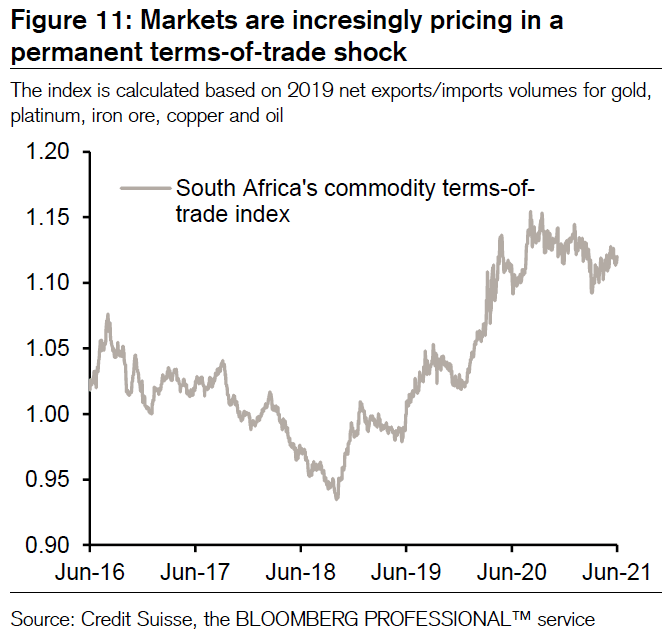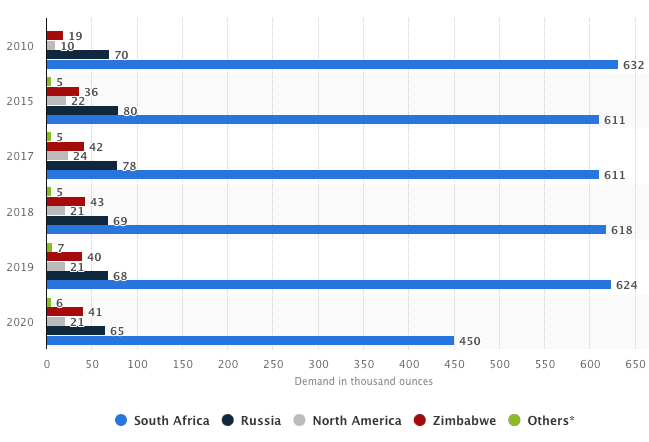South African Rand: Rising Covid Cases Not a Concern for the Currency says Credit Suisse
- Written by: Gary Howes
- ZAR forecasts upgraded
- Despite rising Covid case load
- Metal prices matter more than the pandemic

Above: File image of President Ramaphosa. Image © GovernmentZA
- GBP/ZAR reference rates at publication:
- Spot: 19.30
- Bank transfer rates (indicative guide): 18.62-18.76
- Transfer specialist rates (indicative): 19.12-19.16
- Get a specialist rate quote, here
- Set up an exchange rate alert, here
A constructive stance on the South African Rand's outlook is the consensus one amongst amongst analysts we follow, with one major investment bank now saying the currency will be unfazed by the country's rising Covid-19 infections.
Credit Suisse have this week described the Rand as an Emerging Market "darling" and have told clients they expect weakness in the U.S. Dollar, a 'risk-on' investment environment and a positive terms-of-trade shock will likely lead markets to continue to put aside Rand-negative local developments such as the worsening Covid picture.
Some contrarian investors would look at this emerging optimistic consensus on the Rand, combined with its already standout performance in 2021, as a potential reason to become more cautious on the currency.
Indeed consensus positions are often undone by complacent investors that have become blind to risks on the horizon, and one such risk could be South Africa's rapidly expanding case load of Covid-19 cases:
Image courtesy of NBF Economics.
South Africa has tightened health restrictions and now has more than 1.6 million cases and 56,439 deaths.
"Many African hospitals and clinics are still far from ready to cope with a huge rise in critically ill patients," WHO regional director for Africa, Matshidiso Moeti, said on Thursday. "The threat of a third wave in Africa is real and rising."
But analysts at Credit Suisse have told clients in a recent research briefing that they do not believe another wave of Covid cases and deaths in South Africa would derail the positive momentum in the South African Rand and they have upgraded their forecasts for the currency.
"The rand seems hardly to have been affected at all by South Africa’s worsening Covid-19 picture," says Nimrod Mevorach, Emerging Markets Strategist & Economist at Credit Suisse.
South African President Cyril Ramaphosa on May 30 announced South Africa would move to level two restrictions, meaning an overnight curfew has been extended and government has limited the number of people allowed at gatherings.
But Credit Suisse estimate these restrictions are unlikely to have a material impact on South African GDP growth.
"We are not terribly concerned about the impact of South Africa’s worsening Covid situation on the rand. Many investors will likely adopt a sell-on-spike approach towards USDZAR moves caused by Covid news, on the view that mobility restrictions will eventually have a limited economic impact and that they are unlikely to have a dramatic effect on the fiscal position," says Mevorach.
Secure a retail exchange rate that is between 3-5% stronger than offered by leading banks, learn more.
Underscoring the positive stance on the Rand at Credit Suisse is the view that the country has undergone a positive Terms of Trade (ToT) shock, i.e. South Africa is now earning a great deal more than it spends on imports, creating a supportive dynamics for the currency's value.
We reported on June 02 that JP Morgan have based their constructive stance on the Rand on the surge in the price of Rhodium and other Platinum Group Materials.
Analysis from global investment bank JP Morgan shows that the market might be guilty of "consistently underestimating the persistence of trade balance gains" made by South Africa since mid-2020.
"A plausible explanation is that the rand is in the process of being re-rated as a result of much-improved terms-of-trade," says Credit Suisse's Mevorach.
Commodity prices have risen sharply as the world recovers from the Covid-19 pandemic, in part helped by substantial stimulus programmes in the U.S. and China.
Also aiding commodity prices - particular that of Rhodium - is the ongoing march of the 'green revolution' which raises demand for various metals.
Rhodium is a member of the platinum family of metals is used in catalytic converters to reduce Nitrogen Oxide output from vehicle engines.
South Africa is far and away the leading Rhodium producer on the planet and JP Morgan analysis says they believe the importance of this metal to South Africa's economy has been vastly understated in the past.
Above: Where the world's Rhodium comes from. Image courtesy of Statista.com.
"The longer the dollar prices for some of South Africa’s core exports hold around multi-year highs (e.g. platinum and iron ore) the more receptive markets are to price in the possibility of notable improvement in the outlook for South Africa’s dollar-GDP and the country’s fiscal balance, particularly as the government remains committed to prudent management of government spending," he adds.
Credit Suisse have lowered their Dollar-Rand forecasts as a result and now set a USD/ZAR target range at 13.40-13.80.
A threat to the Rand's constructive outlook, in Mevorach's view, is a change in global market conditions, possibly involving an increase in real interest rates in the U.S. which would aid the U.S. Dollar.
This could in turn contribute to a sharp decline in metal prices, to which the Rand could be exposed.
"In that case USDZAR would likely spike again to levels above 14.00," says Mevorach.







